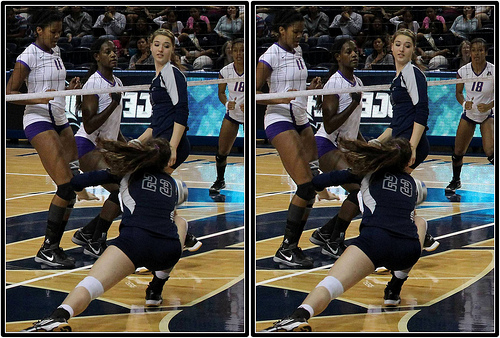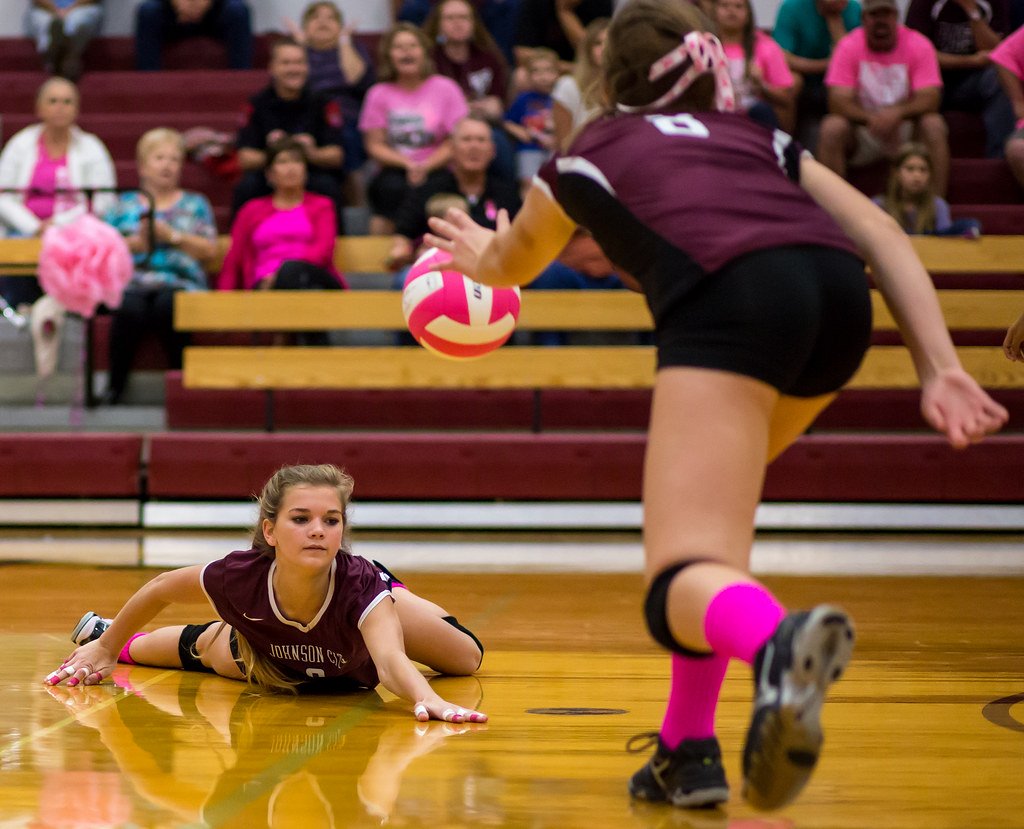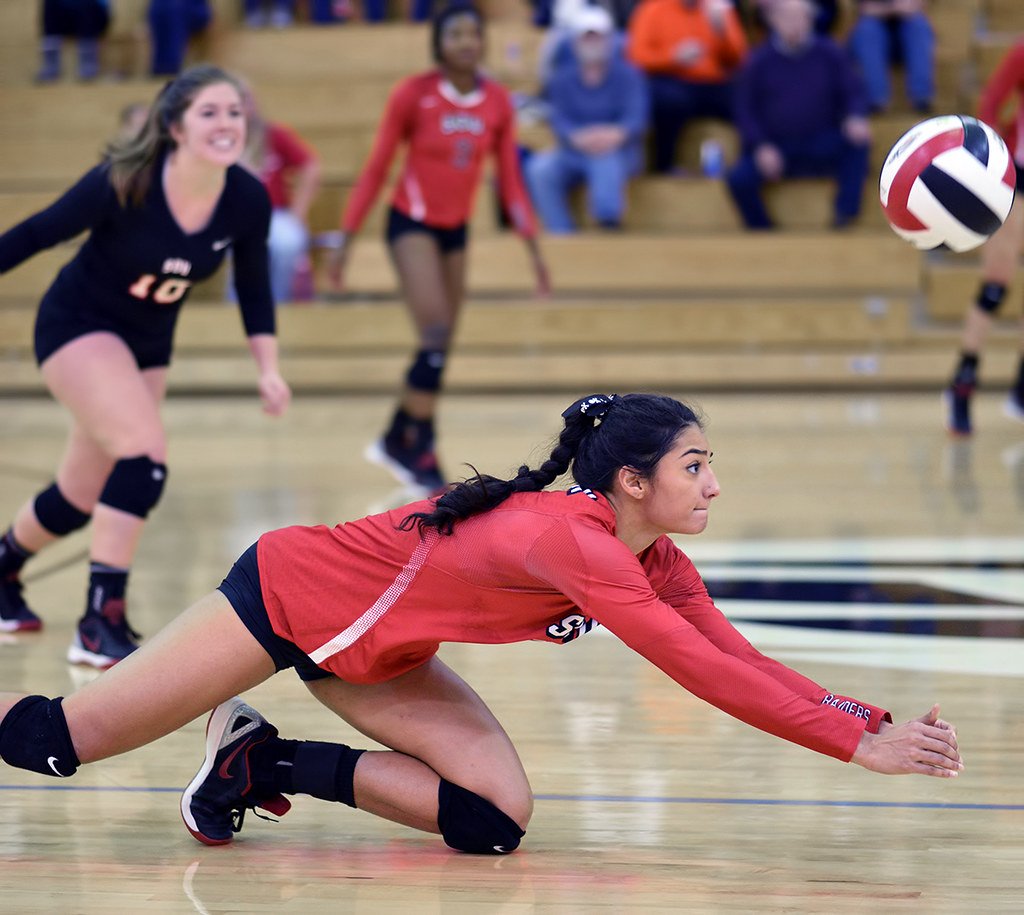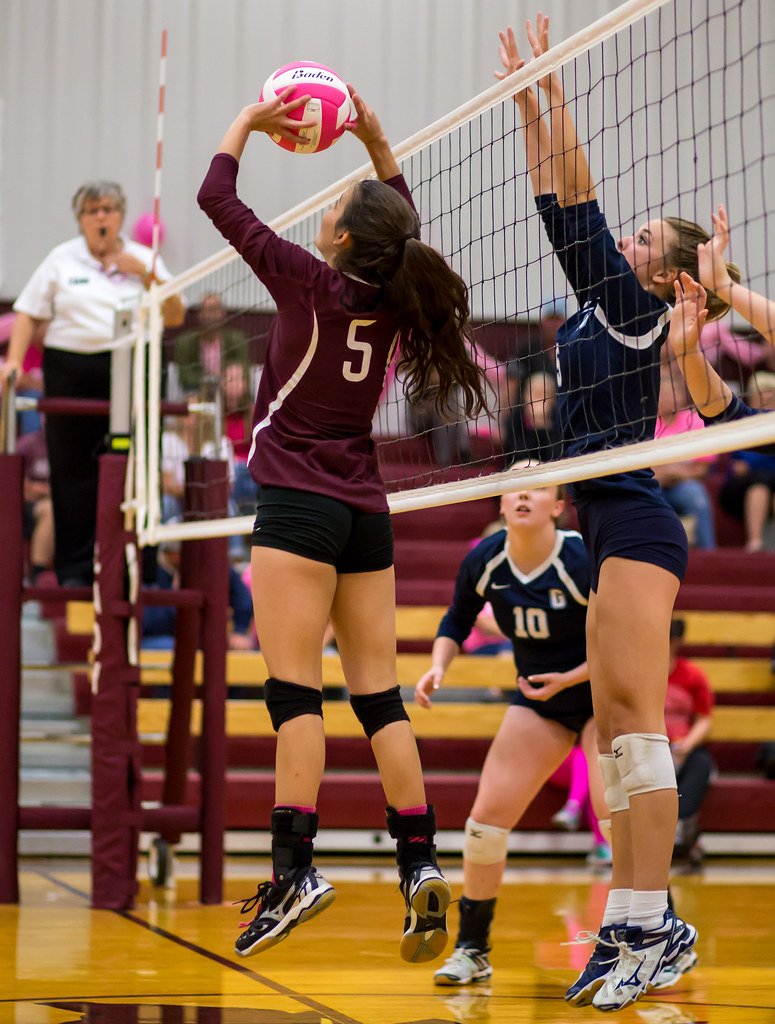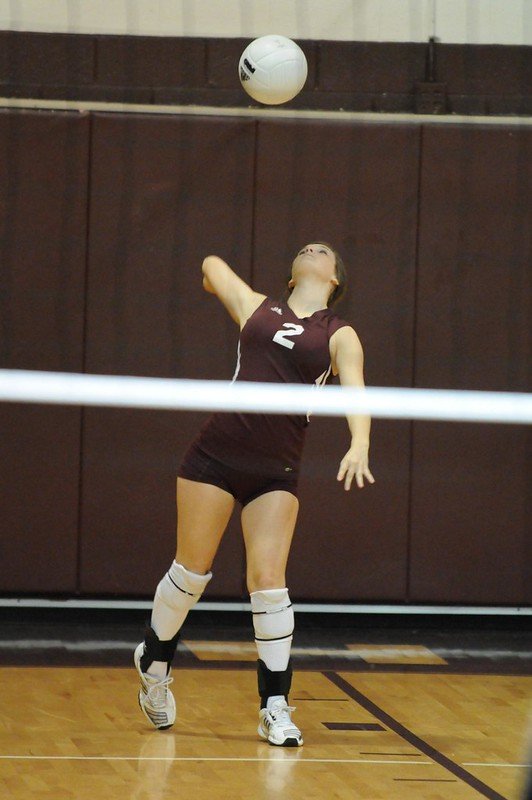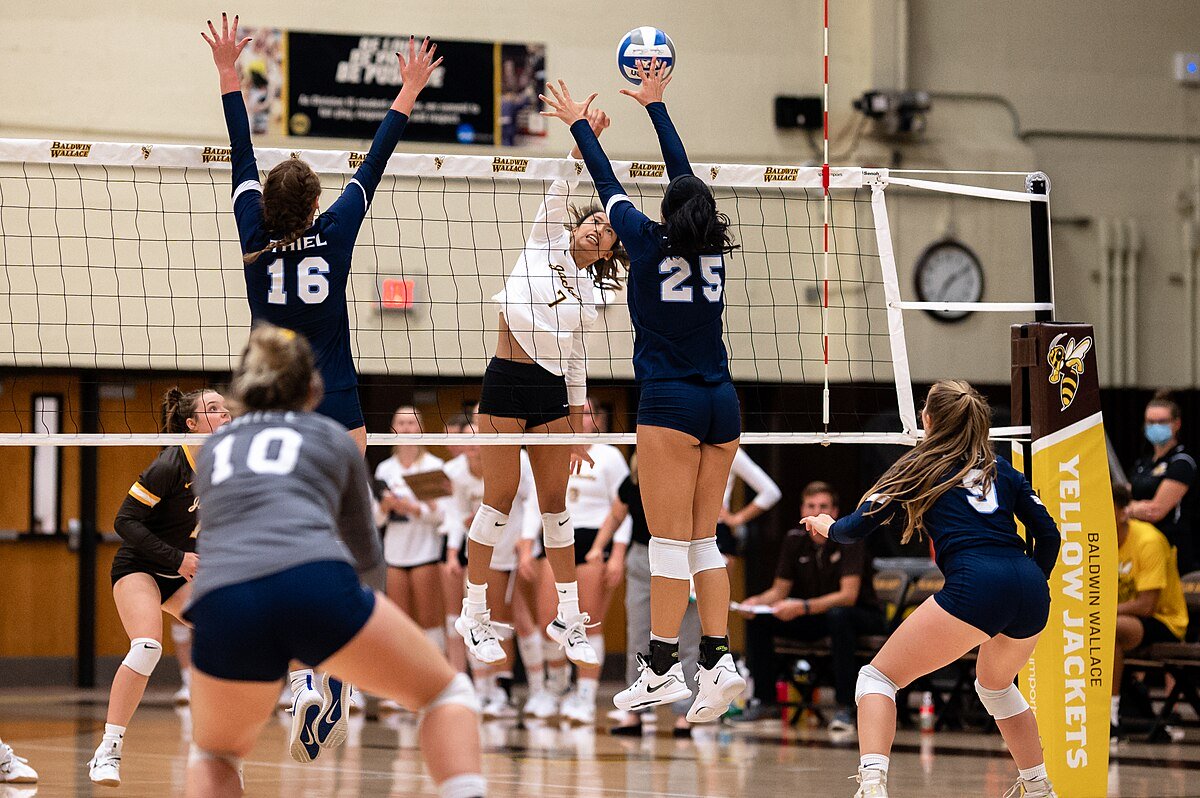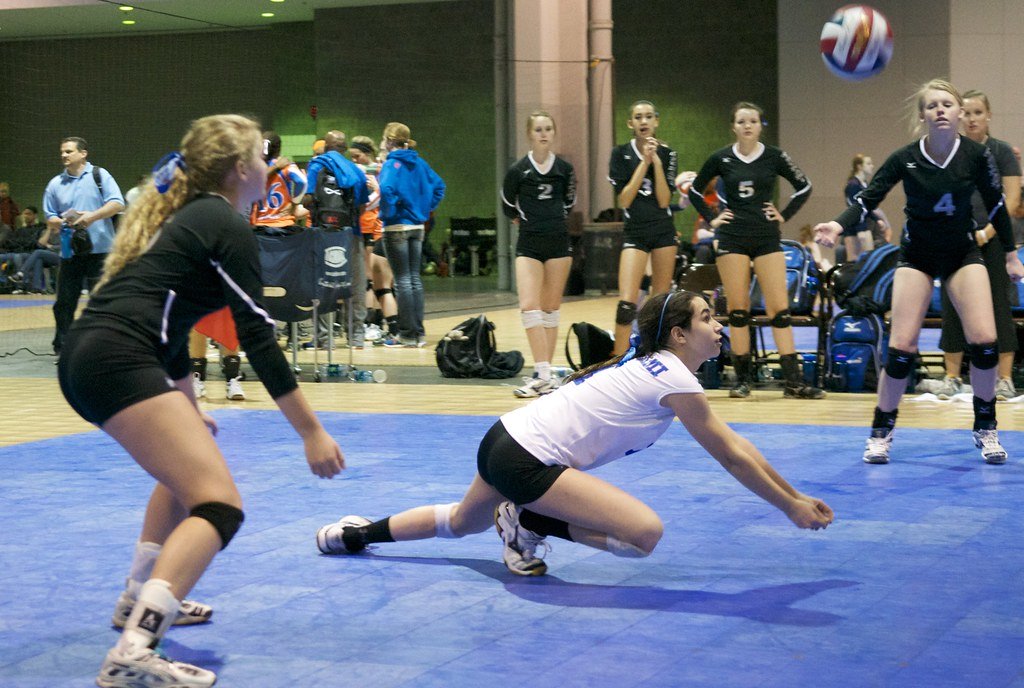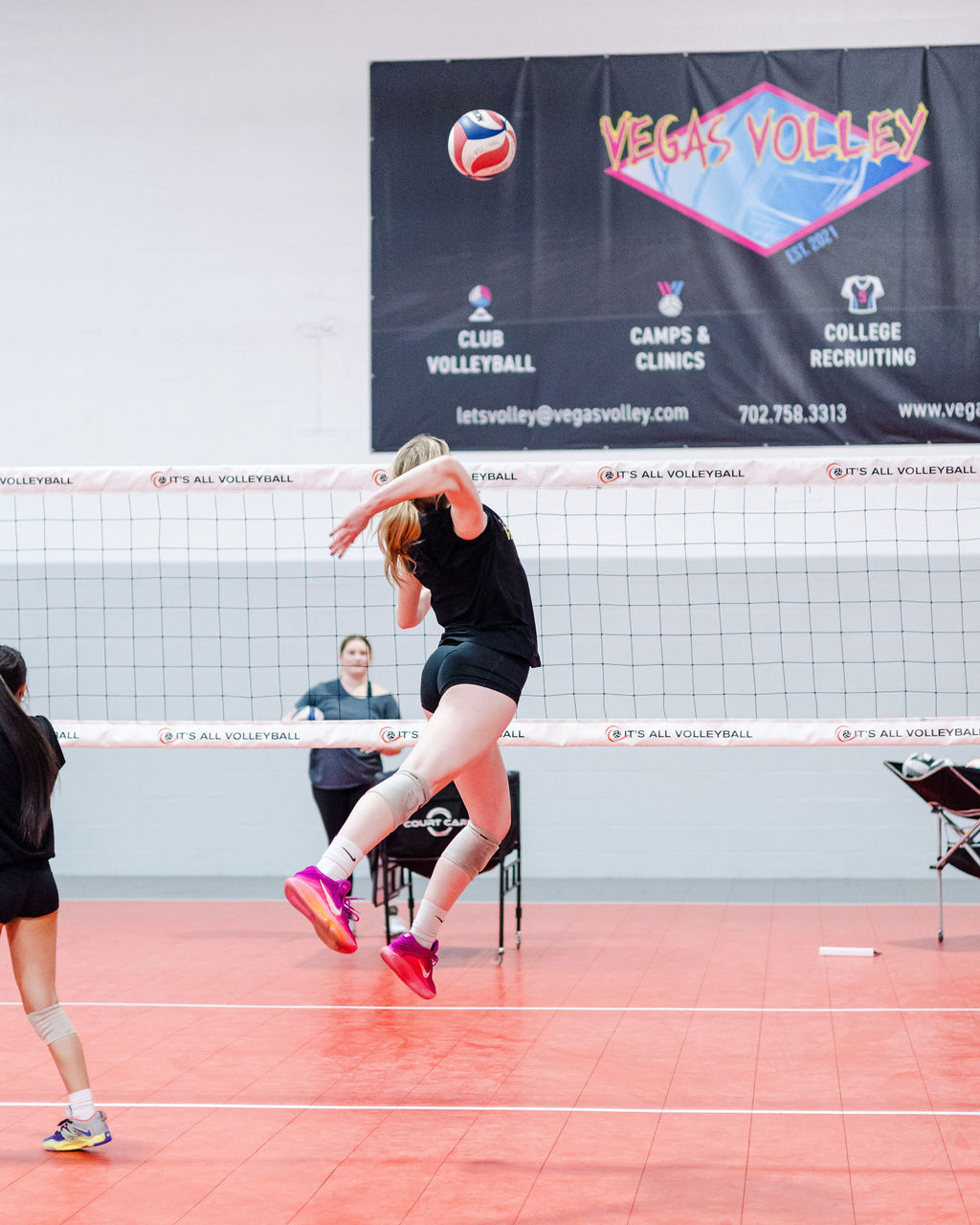- Improve Your Volleyball with Coach April
- Words Used in Volleyball
- Libero Volleyball Jargon
 Dear Volleyball Mom,
Do You Know What Sets My Private Volleyball Training Apart From Anyone In Vegas?
I invite You to read what my private volleyball training mission says before considering hiring me as a private volleyball coach because I'm not available for everyone.
Dear Volleyball Mom,
Do You Know What Sets My Private Volleyball Training Apart From Anyone In Vegas?
I invite You to read what my private volleyball training mission says before considering hiring me as a private volleyball coach because I'm not available for everyone.Libero Volleyball Jargon: Decoding The Secret Language for Savvy Moms
Discover the essential libero volleyball jargon that will elevate your understanding of the game and make you the go-to source for volleyball wisdom at home.
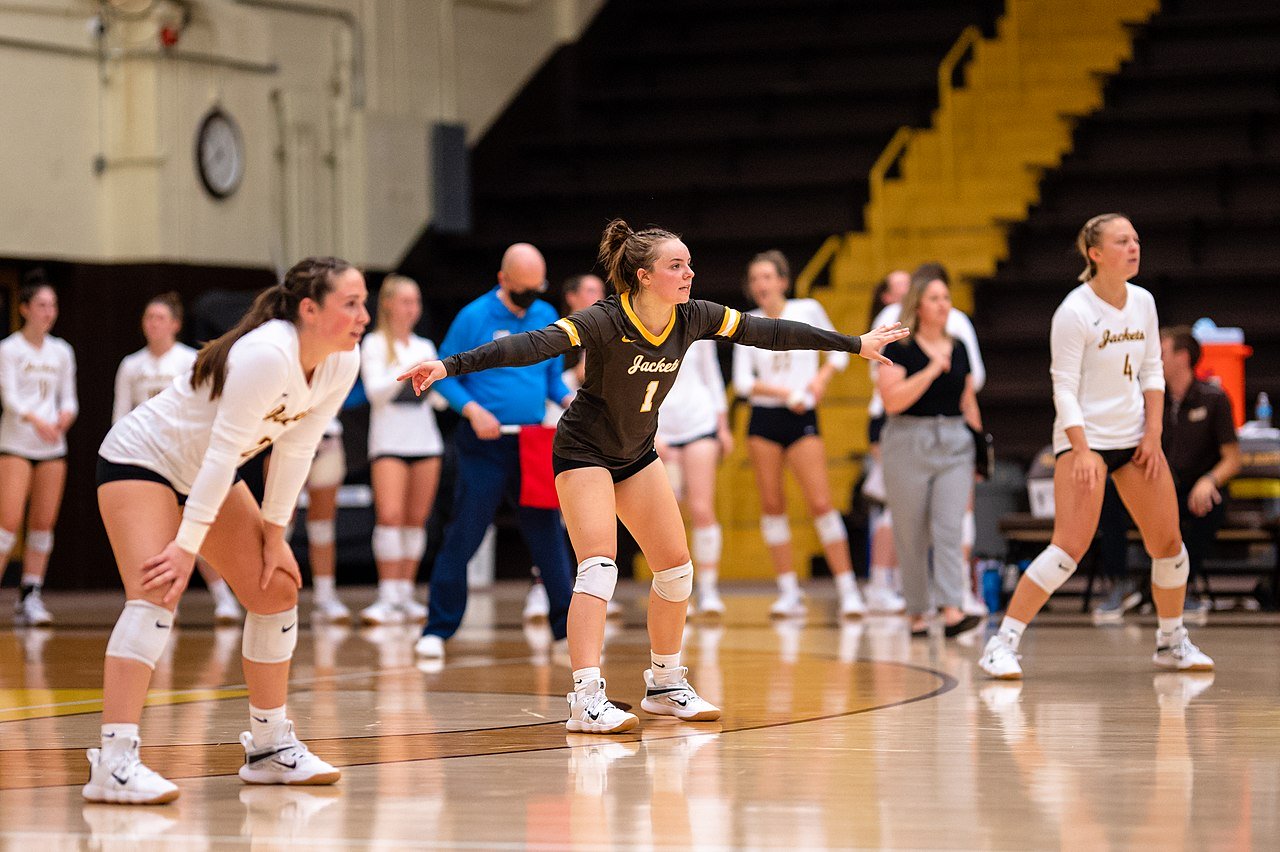 Dear Mom, volleyball digging is what liberos, defensive specialists and six rotation players in the back court do to keep the ball off the court floor. Let me teach you more about the lingo they speak. (Erik Drost photo)
Dear Mom, volleyball digging is what liberos, defensive specialists and six rotation players in the back court do to keep the ball off the court floor. Let me teach you more about the lingo they speak. (Erik Drost photo)Pro-Level Libero Volleyball Jargon: Advanced Techniques and Strategies
- Deep Dish:
A type of setting technique where the player who's about to set a ball allows the ball to come down below their forehead, close to their nose before they place their triangle shaped hands on the ball to set it (some say 'flick it") to an intended target
The "deep dish" set technique is most often used on the beach.
A defensive move where the libero or player on defense lowers themselves towards a ball that's falling quickly in front of them with arms extended to reach for and dig a ball a few inches from the floor
One Step Sprawl
Volleyball Digging Information
- Transition:
Transition which means "change" takes place when during a rally when one team that sends a ball over the net now goes from offense to defense and as play continues...once a team sends the ball over the net its on offense and when the ball crosses the net towards them....that same team now sets up in defense...
How To Master the Lingo: Tips for Volleyball Moms
As a volleyball mom, your support and understanding can make a significant difference in your child's development and enjoyment of the sport.
Here's how you can use libero volleyball jargon to support players at different skill levels:
For Moms of Beginners (Ages 9-12):
1. Focus on learning the basic terms like "dig," "up," and "mine"
These terms will be regularly used by a coach so when discussing volleyball with your child you can help them become familiar with the language.
2. Be available to encourage your child to practice proper form IF THEY ASK ...this is advice I'm giving to moms of tweens that are very young and may need guidance at home.. but for older players they will want to follow their coaches instructions but if they ask, you will be ready to know what they are talking about.
3. There are simple games at home that can be played with younger beginner players to reinforce these concepts in a fun way.
For example, play "Volleyball Simon Says" using libero terms: "Simon says show me your platform," or "Simon says do a dig."
4. Watch volleyball matches together and note when the libero is in action.
Use this opportunity to talk about basic libero volleyball jargon in context.
5. Create flashcards with basic libero volleyball terms and their definitions.
Make it a fun family activity to learn and quiz each other on these terms.
As a pro volleyball player in a foreign country I use put flashcards on furniture in my house in the language of the country I was in so I could remember and learn the language quickly.
For Moms of Intermediate Players (Ages 13-15):
1. Get familiar with more advanced terms like "pancake" and "chicken wing." so you're ready for a possible discussion of when and why these techniques might be used in a game situation.
2. Study and learn on your own, the strategic aspects of libero play, such as positioning and reading the opponent. Study so you understand terms like "seam" and "base position" when talking about court coverage.
3. Watch professional volleyball matches together and point out examples of libero techniques. Encourage your child to identify and explain the libero volleyball jargon they hear and see in action.
4. Help your player understand the unique rules that apply to liberos. Discuss terms like "libero tracking" and "replacement" to familiarize them with the administrative side of the position.
5. Encourage your child to teach you about new libero volleyball jargon they learn at practice. Let them show you what they know in order to test their knowledge to reinforce their learning and helps you stay up-to-date with the terminology.
For Moms of Varsity Players
(Ages 16-18):
1. Explore the nuances of high-level libero play, including complex defensive strategies. Discuss advanced concepts like "transition" and how it relates to the libero's role in both defense and offense.
2. Discuss the mental aspects of the game, such as staying focused and communicating effectively. Use terms like "reading" to talk about anticipating plays and "calling the ball" for on-court communication.
3. Encourage your player to mentor younger teammates, reinforcing their own understanding of the position and its specialized jargon.
4. Engage in discussions about how libero volleyball jargon might differ at the collegiate level. This can help prepare your player for potential next steps in their volleyball career.
5. Use libero volleyball jargon to analyze professional matches together, discussing how top-level liberos execute their roles and how the commentators describe their play.
General Tips for All Volleyball Moms:
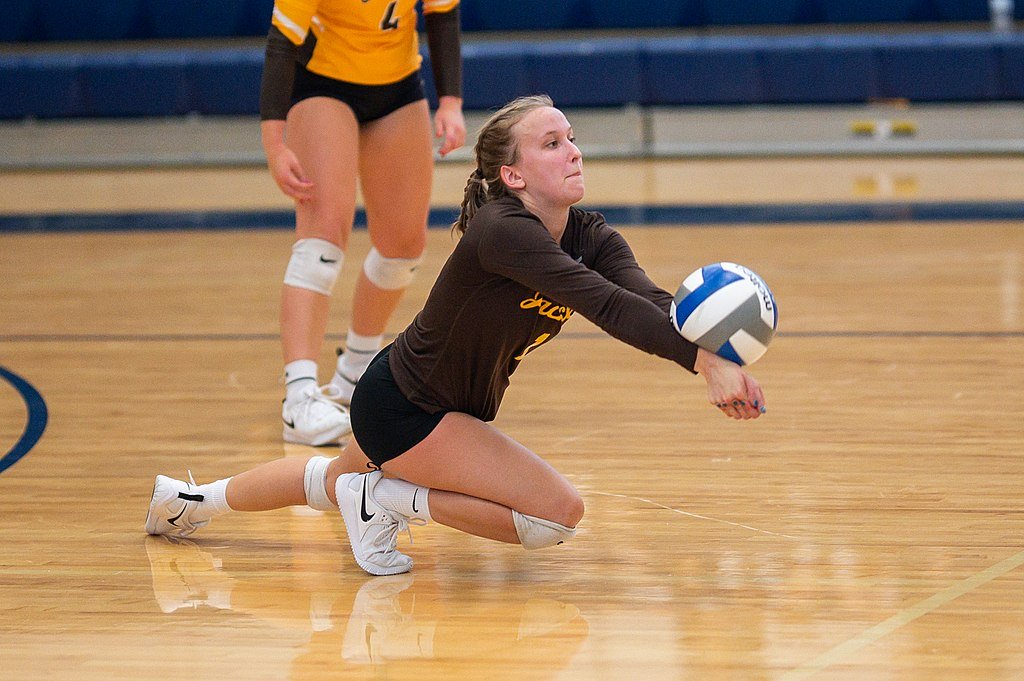 Encourage your child to keep a "volleyball journal" where they can record new libero terms they learn, along with their meanings and examples of use in games. (photo erik drost)
Encourage your child to keep a "volleyball journal" where they can record new libero terms they learn, along with their meanings and examples of use in games. (photo erik drost)
1. Create a "Libero Lingo" board at home where you and your player can add new terms as you learn them.
2. Attend coaching clinics or volleyball seminars when possible to deepen your understanding of libero play and associated jargon.
3. Join online volleyball communities or forums where you can discuss libero volleyball jargon with other parents and players.
4. Encourage your child to keep a "volleyball journal" where they can record new libero terms they learn, along with their meanings and examples of use in games.
5. Remember that while understanding libero volleyball jargon is valuable, it's equally important to emphasize the fun and team aspects of the sport.
By actively engaging with libero volleyball jargon, you're not only supporting your child's volleyball journey but also deepening your own appreciation for the intricacies of the sport.
This shared language can strengthen your bond with your player and make your volleyball conversations more meaningful and insightful.
Remember, the goal is to be a knowledgeable, supportive presence in your child's volleyball life, ready to offer encouragement, understanding, and maybe even a bit of tactical insight when needed.
How To Become Your Player's
Home-Court Advantage
By familiarizing yourself with libero volleyball jargon, you're not just learning a new language – you're becoming an invaluable resource for your volleyball player.
This knowledge allows you to have more meaningful conversations about the game, offer informed support during challenging times, and celebrate the moments when great defensive plays are made.
Remember, the goal isn't to replace coaches or overstep your bounds, but to create a supportive home environment where volleyball knowledge is valued and shared.
As you continue to learn and grow alongside your player, you'll find that this shared language of libero volleyball jargon strengthens your bond and deepens your appreciation for the game.
So, the next time your libero comes home excited about a perfect pancake or frustrated by a six-pack, you'll be ready with understanding, encouragement, and maybe even a few tips of your own.
Now go forth and speak the language of liberos with confidence!
A Glossary of Libero Volleyball Jargon
- dig
- defense touch
- lip
- libero
- pancake
- pepper
- roll
- six pack
- facial
- chester
- chicken wing
- Digging
Volleyball digging is what liberos, defensive specialists and six rotation players back court players do to keep the ball off the court floor.
- Libero
A libero is an expert in digging, serving, passing and backrow defense.
This player position calls for them to be the one back row player to enter games for a front row player, when that player has to go serve in the backrow without having to be "substituted" in.
The libero's jersey is always a different color shirt color than her teammates to make it easier for the ref and officials to differentiate her from her teammates since she only plays in the back row.
- Up
A "nice up!" is a great defensive save or dig.
It's in the same category of phrases or terms describing an incredible volleyball dig, like the term "nice lip" is.
An "up" comes as a result of a player who is continuously digging volleyball hits, tips and attacks that stay off the floor.
Kenny Makes A Great "Up" During One of Our Volleyball Digging Drills
- Tagged
When a ball "tags" a player it means that they couldn’t get out of the way of a hard hit ball which touched him or her before it landed out of bound.
- Touch
A "touch" is when a player contacts the ball.
An example of a "touch" happens when a player on a team on defense is the last person to voluntarily or involuntarily touch the ball while on defense or while blocking, before it goes out of bounds.
- Roll
- a method a player uses to complete a defensive dig or save by falling to the ground in a safe manner that allows him/her to get up quickly and continue playing
We Do Barrel Roll Repetitions in Warmups in Our Boot Camp Classes
- Barrel Roll
The barrel roll is the most common "roll" used among elite and collegiate players.
After taking 2-3 steps to get a ball up thats several feet away from you, you use the momentum to finish your landing on your side and then do a full body roll..also known as a barrel roll...a 360 degree turn while on the ground and then you come to your feet and pop up ready to dig or defend again.
- Dive
a dive is a move a player makes to keep from crashing to the floor after contacting the ball in midair in order to keep it off the floor
Carmela Makes A Great Defensive "Up"
and Finishes With A Dive
- Sprawl
A sprawl is an emergency digging technique used by a player as a last minute effort to keep the ball off the floor.
The sprawl is used when you don't have time to take a step before dropping your body to the ground to beat the ball to the floor.
The Pepper Volleyball Drill Can Be Done With Two Partners Or Three Players
- Pepper
But pepper in volleyball is a pre-game warm up practice drill used by teammates who partner up and perform all three basic volleyball defense and setting, passing and spiking skills in different combinations.
Four person pepper drill in volleyball we do in my clinics
Pepper is a pre-game warm up practice drill used by teammates who partner up and perform all three basic defense and setting, passing and spiking skills in different combinations.
How does the pepper
volleyball drill work?
Players partner up and one will
- set a ball to their partner then
- the partner will pass the ball back and then
- the first partner will control a down ball hit to their partner who
- control digs a ball back to the partner who starts this pattern again with a set
- Pancake
With a very flat hand well-placed under the ball on the floor, the ball will bounce straight up from your hand, as if it contacted the floor.
If you have completely extended yourself to get to a ball this is often the only option left to put your hand out, on the floor, so the ball hits it, instead of the floor.
- Chicken Wing
Usually she will chicken wing a ball because she doesn't have time to get both her arms out to form a platform.
- Six Pack
The six pack describes how a player can dig a ball without using their hands.
It means you get hit in the face by a spiker on an opposing team who hit a ball that hit you hard in the face.
A player can be 'six packed' in serve receive by a server on the opposite team with a strong jump serve.
Or they can get 'sixpacked' while on defense and they get hit by a ball attacked by a spiker with a fast arm swing.
- Facial
A "facial" is another slang term for a "six pack" when a digger gets a hard attack hit to the face.
- Lip
Most commonly "dig lips" or "digging lips" refers to a defensive player who digs a hard hitter more than once in the same play.
If a teammate says "Nice lips" they mean you did a great job making back-to-back amazing digs in a rally.
Some players who want to compliment a teammate who's digging well say that player is "digging lips".
- Chester
A "chester" is in the list of vocabulary slang terms in defense used to describe what happens when a player gets nailed in the chest by a hard spike.
A chester can be a playable ball if it doesn't come to a complete stop on a player's chest.
Quiz Time! Test Your Skills: Interactive Volleyball Quiz Section
Are you a volleyball enthusiast looking to test your knowledge about one of the sport's most crucial moves - the dig?
Our fun and interactive quizzes are tailor-made just for you!
They are designed to not only test your understanding of the dig but also reveal something about your personality.
Ready to have some fun? Let's find out what kind of volleyball player you are!
1. What is 'Pepper' in volleyball terms?
a) A spicy pepper.
b) A warm-up drill involving setting, passing, and spiking.
c) A dig done with style.
2. Which player is an expert in digging?
a) Spiker
b) Libero
c) Setter
3. Which of these is a method to safely fall to the ground after making a defensive save?
a) Pancake
b) Roll
c) Six Pack
4. When you dig a ball in volleyball, which part of your arms is usually used to contact the ball?
a) Elbows
b) Hands
c) Forearms
5. When a player on the defensive team is the last person to touch the ball before it goes out of bounds, this action is known as a...
a) Touch
b) Lift
c) Carry
6. What does a 'Pancake' in volleyball refer to?
a) A volleyball breakfast meal
b) A dig move where a player makes a flat dive on the floor to save the ball
c) The action of tossing the ball high into the air
7. In volleyball lingo, what does "up" mean?
a) A command for the setter to set the ball higher
b) A great defensive save or dig
c) The action of lifting the ball with two hands
8. If you perform a 'Chicken Wing' in a game, that means you...
a) Did a victory dance after a successful dig
b) Used a bent elbow to defend a ball aimed at your head
c) Made a mistake during a dig
9. What do you call the area on your arms that you use as a platform when you're digging a ball?
a) Wrist
b) Palm
c) Forearm
10. The person who often plays in the backcourt and is an expert in digging is called a....?
a) Setter
b) Libero
c) Spiker
11. What does the term 'Chester' mean in volleyball slang?
a) A specific type of serve
b) Getting hit in the chest by a hard spike
c) A powerful spike
12. Who usually says "nice up!"?
a) The referee
b) The coach
c) Your teammate
Quiz Answer Key:
1. b) A warm-up drill involving setting, passing, and spiking.
2. b) Libero
3. b) Roll
4. c) Forearms
5. a) Touch
6. b) A dig move where a player makes a flat dive on the floor to save the ball
7. b) A great defensive save or dig
8. b) Used a bent elbow to defend a ball aimed at your head
9. c) Forearm
10. b) Libero
11. b) Getting hit in the chest by a hard spike
12. c) Your teammate
Remember, whether you answered all correctly or missed a few, the most important thing is that you're learning and having fun!
Share this quiz with your friends and teammates, and see who knows the most about volleyball digs!
Keep practicing and keep digging deeper into the fascinating world of volleyball.
Do You Follow Me on Pinterest?
Follow me on Pinterest Volleybragswag to improve your game even faster!
I share alot of individual, partner and easy-to-do volleyball serving drills we do in class with my followers.
Many of these volleyball practice drills you can do at home by yourself or try at your next practice with your teammates.
If you're a B team or JV player trying to make varsity next year...your goal should be to complete 1000 reps a day of at least three of the basic skills on your own...volleyball passing, serving and setting should be at the top of the list.
Volleyball Dig Definition: Where do you need to go now?
Here are three options:
- Learn more about the volleyball words, terms and terminology in the Related Links below.
- Follow the suggested reading on our Sitemap page Learning How To Play (Sitemap)
- Or visit the pages in the Information section in the drop down menu at the top of the page.
SUSCRIBE
To My Email Newsletter Below!
From Lady Vol to Legend: Coach April Produces Powerful Passionate Players...is that you?
What Are You Looking For?

Hi there!
Thanks for stopping by. Hope you learned something today that will help you reach your volleyball goals.
Be sure to subscribe to my email newsletter so you can learn more each week!
Stay strong! Stay motivated!
-Coach April

SUSCRIBE
to my email newsletter below!
Vegas Volleyball's Unsung Heroes: Celebrating Moms with Peace Love Volleyball Shirts
Ready to energize your volleyball mom journey?
Subscribe to my 'Producing Powerful Passionate Peaceful Players' email list above on ImproveYourVolley.com.
You'll receive energy-boosting tips, exclusive insights from me, Coach April Chapple on maintaining momentum in volleyball.
Let's power up the Vegas volleyball scene together!
Recent Articles
-
The Volleyball Pepper Drill: Partner and Three Player Pepper Drills
Apr 19, 25 02:04 PM
The volleyball pepper drill is a ball control drill using setting, digging and hitting skills usually done as a partner or three player person drill in warmup. -
Best Volleyball Drills For Setters, Hitters, Liberos, Passers Blockers
Apr 19, 25 04:08 AM
Best volleyball drills are essential exercises in the learning process for players to improve your serving, hitting, passing, spiking, setting, blocking skills. -
Volleyball Serve Drills Help Improve Your Serving Down The Line
Apr 19, 25 02:35 AM
Use these volleyball serve drills to improve serve difficulty when serving to zone 5 which helps force the Left Side hitter out of their team offensive system.



